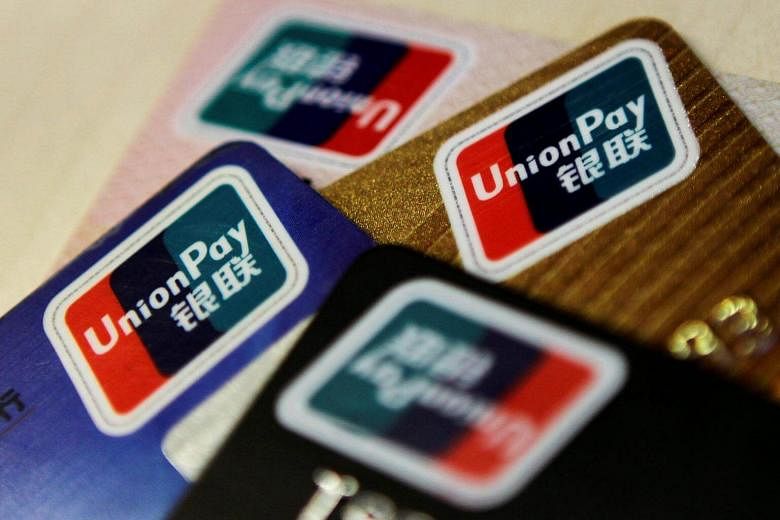BEIJING (Reuters) - China will strengthen regulatory oversight of overseas transactions on Chinese bank cards, as it fight money laundering, terrorist financing and tax avoidance, its foreign exchange regulator said on Friday.
From Sept 1, Chinese banks will be required to report daily their bank card holders' overseas withdrawals, plus every bank transaction that exceeds 1,000 yuan (S$200), the State Administration of Foreign Exchange (Safe) said in a notice.
Under previous rules, China only measured the total amount of overseas transactions on Chinese bank cards.
"Statistics on cross-border transactions need to be improved in terms of trading transparency and data quality, as there are more requirements to fight money laundering, anti-terrorist financing and tax avoidance in global cooperations," the Safe said.
Chinese authorities have been cracking down on underground banks, which have been accused of being a major channel used for money laundering and illegal cross-border transfer of funds.
Last year, Chinese police busted more than 380 underground banks, involving more than 900 billion yuan, and arrested more than 800 suspects, according to the Ministry of Public Security.
Transactions made by Chinese bank card holders overseas exceeded US$120 billion (S$165.6 billion) in 2016, raising the need to "improve statistics quality and maintain trading order", SAFE said.
It added that it will continue to support legitimate use of bank cards overseas and the new rules don't change China's foreign exchange management policy.
The rules will be applied to all kinds of Chinese bank cards, including debit and credit cards.
The stepped up regulatory interest in overseas account activities coincided with a clampdown on capital outflows, as authorities sought to relieve downward pressure on the yuan currency and stop the depletion of China's foreign exchange reserves.
China tightened its grip on moving funds out of the country late last year with a flurry of curbs as the yuan fell to eight-year lows. Capital outflows have since ebbed in recent months, but some analysts say there are signs of an uptick in the second quarter.
French investment bank Natixis said in a Monday report its capital flow tracker for China shows capital outflows for the second quarter will rise somewhat, reversing the recovery in the first quarter.
Banks' compliance of the rules will be measured as part of their foreign exchange management assessment, and failures to comply will result in "regulatory measures and punishment" according to the law, Safe said.

